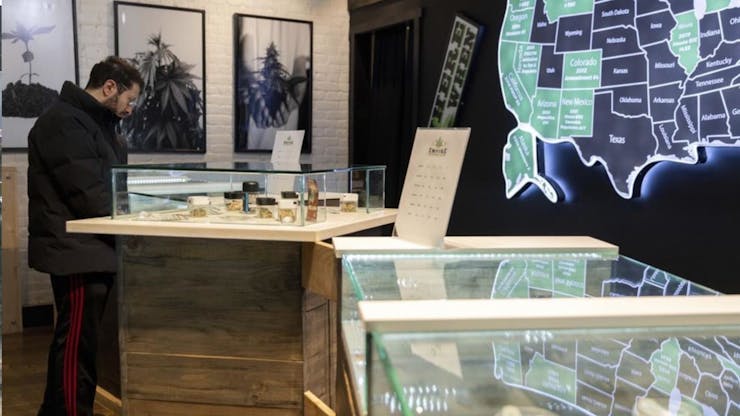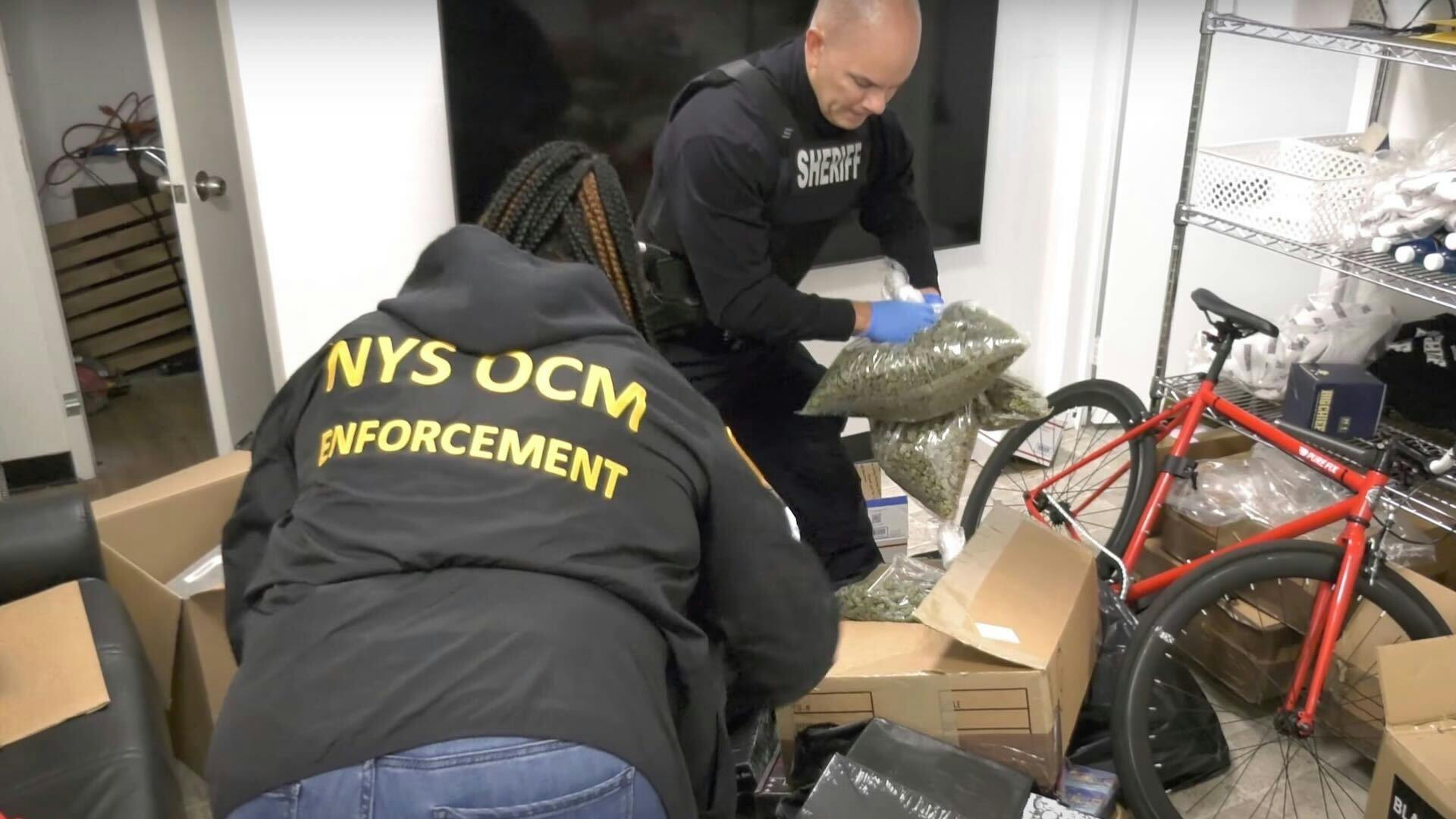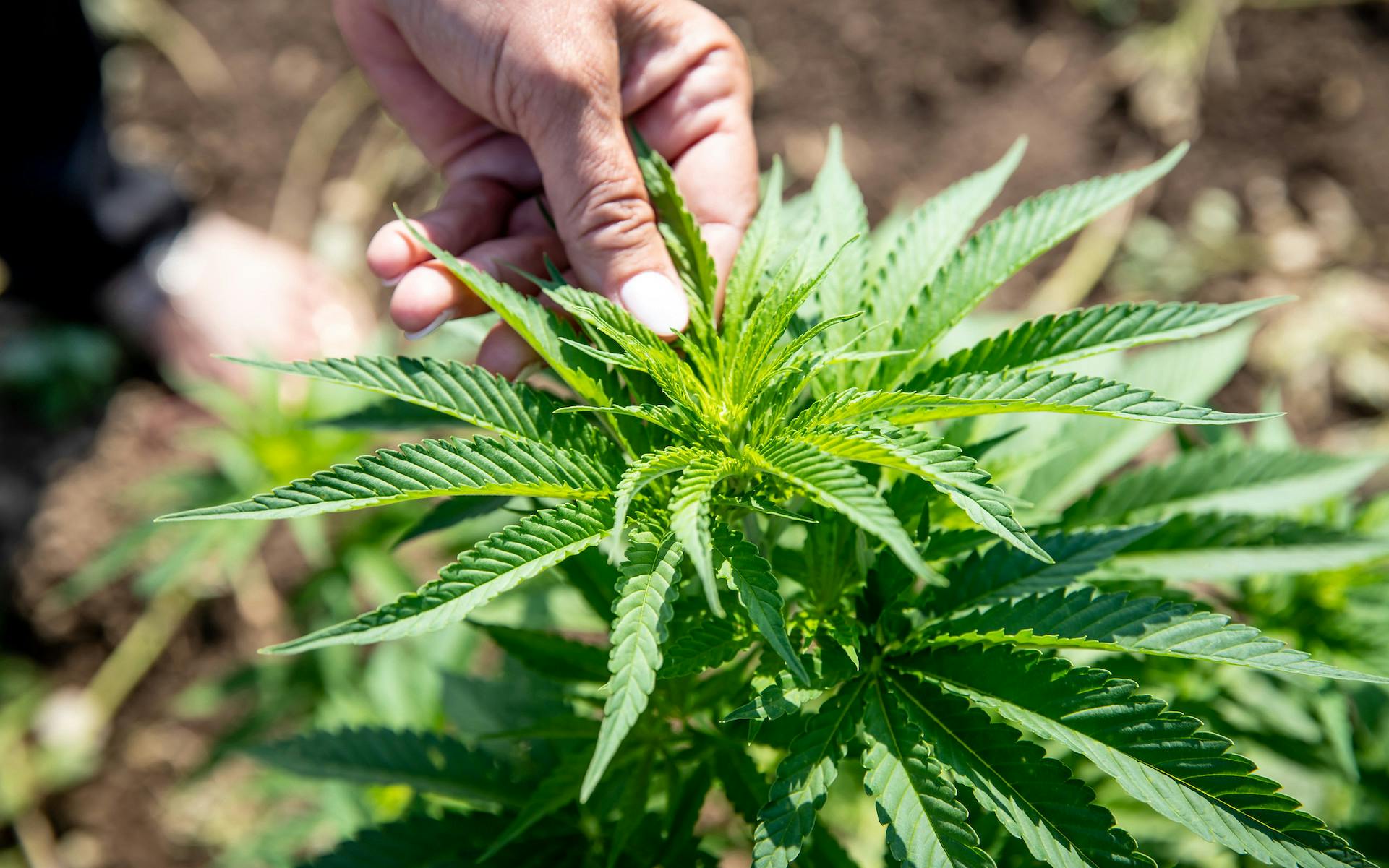These are the nonprofits and businesses controlled by individuals with New York cannabis convictions who will lead the adult-use market.
On a historic day in Harlem, New York’s adult-use cannabis market came one step closer to launching. Earlier this morning, state regulators voted to award NY’s first 36 dispensary licenses to businesses and nonprofits most impacted by the state’s grotesque past of marijuana prohibition.
Eight nonprofits and 28 justice-involved individuals accepted conditional adult-use recreational dispensary (CAURD) licenses at the Cannabis Control Board (CCB) and Office of Cannabis Management’s (OCM) public board meeting.
“These are the types of individuals and organizations that the MRTA (Marihuana Regulation and Taxation Act) envisioned as the bedrock of our industry… We’ll continue to issue licenses on a rolling basis as we have with other license types.”
Chris Alexander, OCM Executive Director
The OCM said this first group of licensees is the top of the class, chosen from 903 total applications submitted between August 25 and September 26. The state will give licenses to an additional 122 businesses and 17 nonprofits from the first wave of CAURD applications.
These are New York’s first 36 dispensary licenses holders

- Capital District Cannabis & Wellness Inc – Capital Region
- William Durham – Southern Tier
- D-Andrews LLC – Capital Region
- Nube NYC LLC – The Bronx
- Gabby Green LLC – Queens
- Essential Flowers – Capital Region
- Brian Stark Enterprises LLC – Long Island
- Albert D Capraro – Long Island
- Strain Stars LLC – Long Island
- On Point Cannabis, Inc. – Binghamton
- Smacked LLC – Manhattan
- Brent L Rogers – North County
- Root 13, LLC – Long Island
- Gabriel Marin – Manhattan
- Housing Works Cannabis LLC – New York City
- Florisun LLC – Manhattan
- Growth Industries – Long Island
- The Doe Fund LLC – New York City
- Carl M. Anderson III – The Bronx
- Royal Leaf NY LLC – The Bronx
- Keep It A 100 LLC – Long Island
- CGG Enterprises Inc – Queens
- CURED NY, LLC – Mohawk Valley
- Kush & Kemet, LLC – Queens
- Urban Weeds LLC – Queens
- GOTHAM CAURD LLC – New York City
- CWS Holdings I, LLC – Ithaca
- EASTERN HOLDINGS 88 LIC – Staten Island
- PLANET 51 LLC – Manhattan
- Stage One Cannabis LLC – Capital Region
- Suzanne M Furboter – Queens
- NYCCABUDS – Center for Community Alternatives – NYC, Rochester and Syracuse
- Anthony Crapanzano – Queens
- SAMJNY Holdings LLC – Staten Island
- Union Chill Cannabis NY LLC – Southern Tier
- Hydro Phonics – Long Island
These retail licenses will close the loop for New York’s adult-use cannabis supply chain, which already has dozens of cultivators and processors, as well as reportedly $750 million worth of legally-grown cannabis ready on the industry’s supply side.
Next, the first class of awardees will now need to submit a secondary supplemental application showing approval from a municipality before becoming fully licensed. The state plans to use a $200 million fund to help these businesses stand up quickly, potentially ahead of a long-promised 2022 year-end deadline. The 10 firms tasked with building out turnkey dispensaries for the state were named last week.
More retail CAURD application windows are expected to open next year.
Why is New York giving people with cannabis convictions first licenses?
“Nowhere in this country was cannabis prohibition weaponized more methodically,” than in New York state, said OCM chief equity officer Damian Fagon at Monday’s board meeting. Fagon revealed new state research that shows that between 1980 and 2020, 1.2 million marijuana arrests occurred in the state, with almost 400,000 convictions. The vast majority of those impacted were men of color.
According to a release from the OCM, “Over the last 30 years, Black New Yorkers were 15 times more likely to be arrested for cannabis than white New Yorkers. For Latinos, it was eight times more likely. Accordingly, the majority of the license awardees announced today are people of color.”
In 2018, state documents reported, “New York’s marijuana arrest rate of 535 arrests per 100,000 people was the highest of any state in 2010 and double the national average.” The state’s report on how criminal records impeded New Yorkers’ lives continued, “(In 2010), there were 103,698 marijuana-possession arrests in NYS—29,000 more than Texas, the state with the next highest total.”
“The impact of low-level marijuana offenses extends beyond utilization of law enforcement and criminal justice resources. Individuals who have a criminal record often face challenges throughout their lives accessing gainful employment and qualifying for federal housing. Marijuana-related convictions have a lasting impact.”
New York state report assessing potential impacts of cannabis legalization
Here’s how New York will position these dispensaries for success
According to the latest regulations released Sunday, vertically-integrated operations will be prohibited from opening dispensaries for the first three years following day one of legal sales. Those regulations are still up for revision after two months of public comment, but New York regulators have remained steadfast in their intention to cultivate a cannabis market that resembles the state’s wine and liquor markets.
To accomplish the goal of a consumer-driven market, the state plans to enforce a strict separation between suppliers and retailers. That means no parties can have ownership across the division of supply and retail tiers.
OCM chief of staff Axel Bernabe gave this example Monday to illustrate: “You can’t have (a) Budweiser beer store. You can’t have (a) Jack Daniel’s liquor store.” The state wants to see the same for the cannabis industry because it will mean buyers, not big business, will decide what products succeed.
The law will also forbid pay-for-placement shelving arrangements that could give large businesses undue influence at any point of the seed-to-sale process. OCM executive director Alexander said Monday that these regulations will “ensure the wealthy and well-connected do not dominate the market,” while encouraging licensees to focus on positively impacting the community and environment. The regulations are also intended to encourage investment and competitiveness in the retail market.
“No one else in the country other than Washington [state] does this,” Bernabe explained. “It’s a very progressive, aggressive approach.” The OCM chief of staff added that exceptions to the two-tier will exist, like micro licenses for craft farmers who can grow, sell, and deliver their own products under certain restrictions.
Since no retailer can operate more than three stores, and no cultivator can stack licenses, CAURD license recipients will have the freedom to choose the products they believe customers want to buy most.
No dispensaries in Brooklyn, Central New York, and more regions for now
Meanwhile, a federal lawsuit will delay the issuance of dispensary licenses in Brooklyn, Finger Lakes, Central NY, Western NY, and Mid-Hudson. This signals a hold on at least 63 of the 175 new dispensaries planned, according to the geographic limits set forth by the state earlier this year.
The plaintiff, Variscite NY One, is claiming the OCM’s dispensary license application program discriminates against out-of-state operators and blocks interstate commerce, a direct violation of the Dormant Commerce Clause, which keeps states from favoring their own economies over a healthy national marketplace.
The OCM has declined to comment on the ongoing litigation, but said it plans to move forward issuing licenses in unaffected regions until things are resolved in court.
These are the applicants who have spoken publicly about their licenses so far:
- Christina Betancourt Johnson announced that her team won a license.
- LIFE Camp, a nonprofit Erica Ford founded in 2002 to help reduce violence and arrests in Southeast Queens, is the Black woman-led nonprofit to receive a license, according to The New York Times.
- Center for Community Alternatives, a Syracuse-based nonprofit that provides alternatives to incarceration for people who have been arrested and re-entry services for people returning to society from jail and prison throughout the state.
- Three applicants were assisted by the Bronx Defenders legal team, including a family from the Bronx, a man from Long Island, and a man from Queens.
This story will be updated as more information becomes available.








